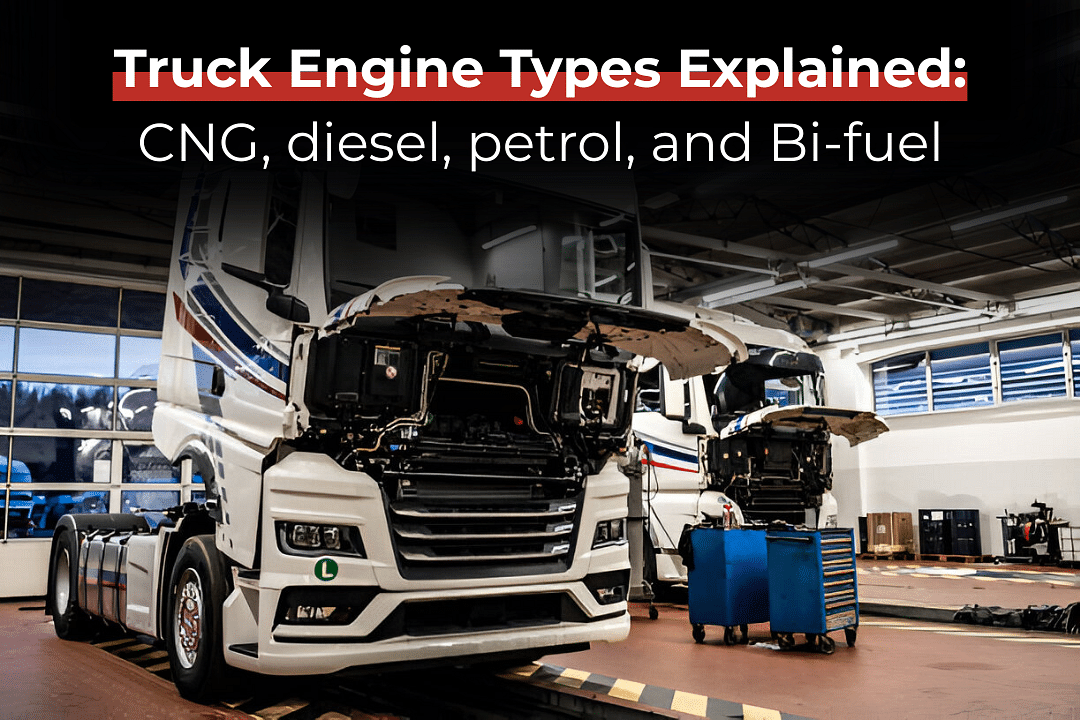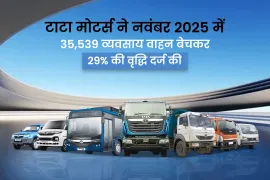On the highway, some trucks make a lot of noise. On city streets, others remain silent. Their engines are the source of that difference. Every engine type has a unique function and is designed for a particular task.
Truck engines come in four primary varieties: bi-fuel, diesel, CNG, and petrol. Every engine has unique features, advantages, and disadvantages. Let’s see the difference between these engines and find out which fuel type is best for you.
Petrol Engines
Spark ignition is used in petrol engines. They burn both fuel and air. Light and medium-duty trucks are where you can find them. Why? They are inexpensive, responsive, and simple to repair. For city deliveries, they perform admirably.
However, there are some limitations as well. Petrol engines are not fuel efficient when you carry a heavy load.They are therefore less cost effective on long journeys
Diesel Engines
Spark plugs are not used in diesel engines. To heat the air, they compress it. Diesel is then sprayed in. On contact, the fuel burns. We refer to this as compression ignition.
This process generates a lot of torque. even when the RPM is low. Diesel engines are therefore ideal for heavy loads and long distances. They last a long time too, thanks to the fuel efficiency of diesel.
However, their maintenance costs are higher. DPFs and DEFs are two examples of the sophisticated emissions systems found in diesel trucks.
CNG Engines
Spark ignition is also used in CNG engines. However, they burn methane rather than petrol. CNG has a high octane rating, is quiet, and is clean.
These engines perform best on designated routes or in urban areas. Consider delivery fleets or garbage trucks. However, CNG tanks are large and heavy. This implies a shorter range and less cargo.
Refueling can also be challenging. Not every location has a CNG station. However, CNG makes sense for local use.
Bi-Fuel Engines
CNG and petrol power bi-fuel engines. Not both at once. One fuel at a time is selected by the system. It usually starts on petrol. It then transitions to CNG. This allows for flexibility. When CNG is available, you can save fuel. But when necessary, switch to petrol.
The compromise? The power of CNG is not entirely usable by these engines. Why? since they are designed to compress petrol. As a result, using CNG mode reduces performance.
Which Engine Is Best for Your Route?

- Long haul? Select diesel.
- Work in the city? Use petrol.
- Local runs? Make use of CNG.
- Do you require backup fuel? Select bi-fuel.
There are trucks that run on hydrogen and electricity. However, these four engine types continue to dominate the road today. You can select the best truck for the job by being aware of how each one operates.
For more articles and news, stay updated with 91trucks. Subscribe to our YouTube channel and follow us on Facebook, Instagram, and Linkedin for the latest videos and updates from the automotive world!
वेब स्टोरीज़
नवीनतम ट्रक समाचार
श्रेणी
91ट्रक्स एक तेजी से बढ़ता डिजिटल प्लेटफॉर्म है जो वाणिज्यिक वाहन उद्योग से संबंधित नवीनतम अपडेट और जानकारी प्रदान करता है।










